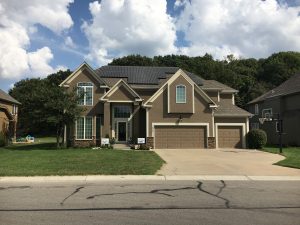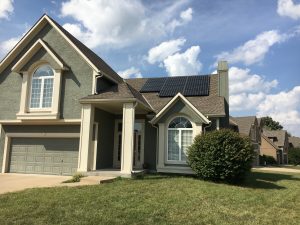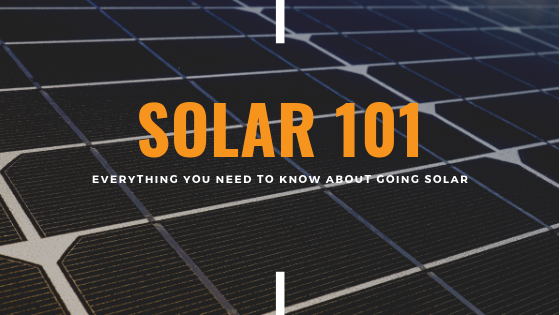Considering getting solar panels? What a great choice!
Solar panels offer many benefits to homeowners including lowering your energy bills, reducing your carbon footprint, and increasing the value of your home. There is a lot to consider when choosing to go solar so it’s important that you take your time and weigh all options. To help you along, here are 10 questions you should make sure are answered before purchasing your solar panels.
1. How much will it cost?

Before you choose to purchase your system, you need to get an accurate estimate for the installation and maintenance. If you shop around for quotes, the prices will differ based on many factors, including the quality of panels chosen, the type of inverters, the size of the system designed, and structural preparations of the site that may need to be done. Make sure you get a comprehensive quote that covers everything from structural reinforcements and labor costs to continued maintenance.
Remember, a lower quote does not always equal the best deal. Often, using cheaper materials equates to a higher price in the long run.
Often cheaper will cost more in the long run.
2. Are there any rebates or other incentives available?
The federal government is currently offering a 30% tax credit for installing solar panels. On top of that, many states are also offering their own rebates. A good solar company should work with you to find the best deals in your area and offer to manage all of the paperwork for you.
3. When will I start seeing my return on investment (ROI)?
Solar panels will save you money on rising energy costs while increasing the value of your home. However, the solar company you work with should outline exactly when and how you should expect to see those savings, and when the system will have paid for itself. If you finance, you may see the savings in your first energy bill. Other times it can take a little longer.
☀️READ | How to Choose a Solar Company You Can Trust
4. How much energy should I expect to produce?
You can put the same system on different homes and you may see different results. This can be because of trees, the angle of the roof, the direction the panels face, and more. When you speak with your solar provider, they should be able to give you a projected energy output for your system. Have them break it down all the way to your monthly expected output so you can know what to expect from each season.
5. How long will the installation process take?

The installation process can be extensive. How long it takes will be determined by how many people are currently scheduled to install a system, if your property needs any preparation before installation, and various other factors. It is important that you keep this in mind when you decide to go solar so you can plan accordingly. You probably don’t want workers at your house during the holiday season for example. So make sure your project timeline is clear.
6. When will my solar system be active?
The date your installation is completed is not always the date your solar system will be live. Some people choose to delay their system’s actual activation in order to comply with rebate rules. When you are looking at the project plan, take note of when your system will actually be turned on.
7. What kind of warranty will I receive?
A product is only as good as it’s warranty. As with any major purchase, you should make sure you know exactly what the product’s guarantee is. Sun Source has one of the best warranties in the business: a 25-year warranty that covers both parts and labor (check your contract for specific details).*
*25-year residential warranty. 5-year residential warranty in Florida. 5-year commercial warranty in all locations.
☀️Read | Solar Panel Warranty: What Should Be Included?
8. Is my house a good candidate for solar power?

Many people believe you must have a roof that faces south in order to have solar panels. However, there are multiple configurations that can be used. If a rooftop system is not an option, a ground mount might be appropriate for your property. A trustworthy installer will show you your projected ROI and provide adequate justification for your purchase. If it is not going to save you money and the installer insists on moving forward, walk away.
9. How can I monitor my system?
It’s important that you have access to your system’s information in order to gauge your power production and make sure your system is functioning correctly. Before purchasing, ask to see the software for monitoring. Make sure it is easy for you to access and understand. Also, check that it is a reputable program and a 3rd-party application not owned by the solar company you will be purchasing from. You want to make sure the program will provide honest reporting that can’t be tampered.

10. What should I see in my contract?
Your solar quote or proposal should outline the size of the system that will be installed, the products being used (including their model numbers), your projected savings, your estimated energy production per month, the tentative project timeline, and the total estimated costs. If incentives are included, make sure they are clearly called out as such. Your contract should also list the warranty you will have.
☀️GET A FREE, NO OBLIGATION QUOTE FROM SUN SOURCE HOMES NOW
Want to know more about going solar? Find more helpful information in our Solar 101 series!
